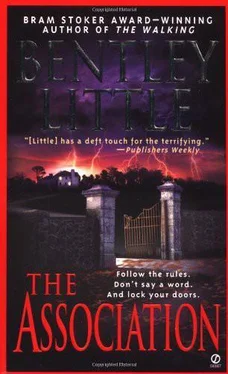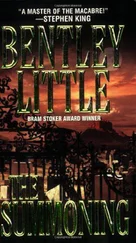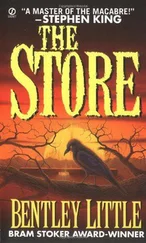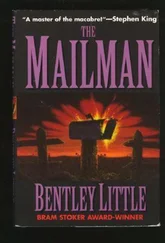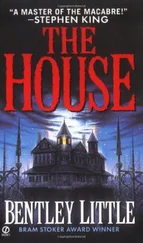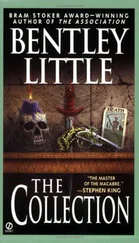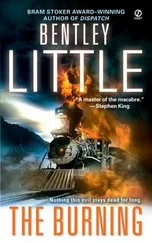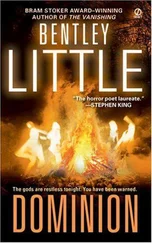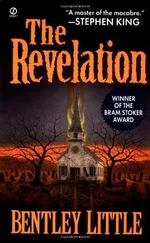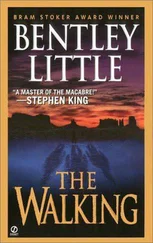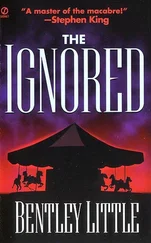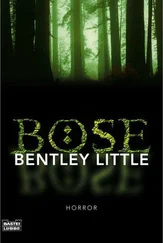Liz grimaced. "Pretty soon, we'll be cut off from the town entirely.
What then? Is the association planning to open its own grocery store and gas station, build a power plant?"
"They're ambitious," Tina said. "I'll give them that. But I don't think they'd go that far."
"But what do they hope to gain by angering the town?"
It was a question Maureen had been wondering herself, and it was one for which none of them seemed to have an answer.
There was a significant pause in the conversation.
Maureen broke the silence. "Speaking of the association," she said, "wasn't there a gay couple at one of your parties? I think one of the guys was named Pat?"
Liz nodded soberly. "Wayne and Pat. They're gone."
"That's what I was wondering about. We were going through the C, C, and Rs last night and saw an anti gay rule and an anti-living-together rule."
"Yes."
"Gone?" Maureen said, the word finally sinking in.
"They disappeared. I'm sure their house is untouched and all of their clothes are in the closets, but... they're gone." Her voice dropped, as though she were afraid of being overheard. "It happens around here."
Maureen thought of all the empty houses in Bonita Vista, the ones she'd assumed were vacation homes with absentee owners. In her mind, she saw fully stocked refrigerators filled with rotting food, place settings at dining room tables covered with dust, and suddenly their calm, quiet neighborhood no longer seemed so benign.
"As for not allowing couples to live together, that's resulted in more than one enforced marriage."
"You're kidding."
Both Liz and Tina shook their heads.
"It's true," Tina said. "Jeannie and Skylar Wells moved here from Phoenix where they'd been living together forever. They got a little nudge from the association, and the next day--the next day--they went down to the justice of the peace and got hitched."
"A 'nudge'?" Maureen said.
Liz looked at her. "They won't talk about it."
Lupe cleared her throat. "I want to know about this anti minority rule. How strictly is that enforced? I'm Hispanic." She smiled. "As I'm sure you can tell. Say I wanted to retire up here."
"You want the truth?" Liz asked.
"Of course."
"There's no way I would buy a home in Bonita Vista if I were you.
Discrimination is illegal and, who knows, maybe if someone took them to court over that provision, it'd be struck down." She leaned forward in her chair. "But no one has."
The statement had an ominous ring to it, and Maureen felt an unwanted shiver tickle her spine. Her mouth felt dry, and she sipped her iced tea. "You mean this place wasn't always all white? There've been minority homeowners in the past?"
"There was a single man, white man, had a place up here, over on Blue Spruce Circle. A vacation home. He came maybe every other summer, stayed for two weeks or so. Usually to paint his house, clear brush, comply with whatever warning the association sent to him. One year he showed up with his new wife, a Vietnamese woman. Two days later, he'd cleared out, and a week after that, the house went up for sale. We never saw him again."
"What do you think they did?" Lupe asked. "Threaten him with a fine or something?"
"More than that, I'm sure. But what it was specifically I can't say."
"And that's it?" Maureen asked. "There's never been another nonwhite person up here?"
"That rule keeps them out. They don't buy here. And in case you haven't noticed, Utah is not exactly a hotbed of diversity to begin with."
Everyone laughed, everyone except Liz, who grew even more serious. "The thing is," she said, addressing Lupe, "they've used that rule on guests as well as residents. I don't want to scare you or anything--"
"I don't scare easily," Lupe insisted.
"--but apparently in their minds, this provision applies to visitors.
Some friends of ours—the Marottas ," she said to Maureen. "I think you met them at one of our parties--had a brother or cousin or something who'd married a black woman. They all came up for Thanksgiving a couple of years ago, and the wife was found naked and crying the next morning in the ditch in front of the Marottas ' house, half frozen in the snow. I don't know exactly what happened, but Tony and Julia still won't talk about it. They refuse. And they've never had Thanksgiving here again."
"They try anything with me and Jeremy, they're going to be sorry they were ever born." Lupe's voice was firm, her expression set.
"That's a good attitude," Liz said, nodding. "But I'm not sure attitude is enough. Not with the association."
Twenty minutes later, Maureen, Lupe, and Danna were walking back home.
Though they had a lot to talk about, the mood was considerably more somber than it had been on the way over, and the optimism Maureen had felt knowing that Liz had stood up to Jasper Calhoun and was once again her normal, feisty self had completely dissipated, replaced with a demoralized resignation that left her feeling empty and cold.
Liz stood next to Tina in the darkened community center feeling guilty and deeply ashamed. On the monitor facing Jasper Calhoun and the board ran a replay of their afternoon meeting with Maureen and her California friends.
"You did good," Calhoun commended them. "You are assets to Bonita Vista, both of you."
"Thank you," Tina said, obviously pleased.
Liz said nothing.
"Elizabeth?" Calhoun prompted.
"Thank you," she whispered.
She was glad that the room was dark and the board could not see the tears rolling down her cheeks.
And she was glad that Ray was dead and had never lived to see this day.
Barry had been looking through the revised C, C, and Rs , following Jeremy's lead. He'd perused them before, of course. Several times since the meeting. Looking for loopholes.
But now they were different.
He'd been trying to reconcile that for over an hour. He pored over regulations he didn't remember, unsuccessfully attempting to convince himself that his memory was going, or that he had too much on his mind, or that a person could not remember every single paragraph in a document this size, but he knew that those excuses were just that--excuses.
The C, C, and Rs had changed.
That was impossible, though. It meant that either someone had been sneaking into his house and replacing his old book with revisions, or that the pages were revising themselves, new rules magically appearing on formerly blank space.
Neither option was believable, neither was possible.
But, tellingly, he did not reject either one.
The ELP record they'd been listening to ended, and Chuck hurried outside to his car. "Hold on a minute," he said. He'd brought along a cache of new CDs, among them a Tom Waits album that Barry had read about but not yet heard, and he returned a few moments later, tossing a dark jewel case into Barry's lap.
"All right."
"There was a guy out front," Chuck reported. "Tall, skinny, wimp-looking sucker with a clipboard, writing notes. He walked away when he saw me, pretended he wasn't spying on us."
"Neil Campbell," Barry said, picking up the CD. "Association lackey."
"They know we're here," Jeremy said dryly.
Dylan grinned. "Good." He opened the door, stuck out his head. "We're kicking ass and taking names, motherfuckers !"
"That was mature," Barry told him, but secretly he was pleased. It felt good to have allies, people from the outside world who could say and do whatever they wanted with impunity.
They'd already watched Chuck's video of the neighborhood twice, looking for anything that appeared to be a gross violation of the association rules, but in his examination of the C, C, and Rs , he'd found nothing, and he shut off the television as he walked over to the stereo.
Switching the tuner from Phono to CD, he popped in the Tom Waits and cranked up the volume, smiling as he heard the singer's familiar baritone growl.
Читать дальше
